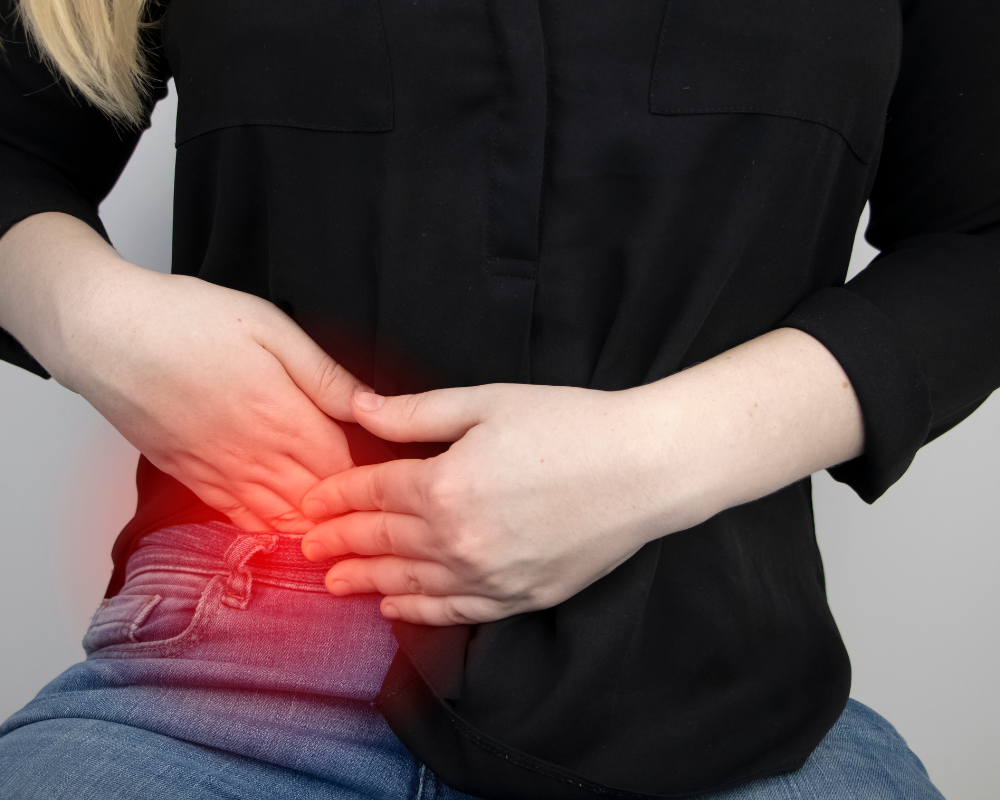Appendix
24+ years of experience 20,000+ patients treated. Insurance facilities are available for laparoscopic Appendix repair.
What are Appendix?
The appendix is a small, tube-shaped pouch attached to the large intestine. Its function is not entirely clear, but it can become inflamed and cause appendicitis, which requires urgent medical treatment.

Types of Appendix
The appendix can be affected by various conditions, primarily differentiated by how they impact the appendix and the surrounding abdominal area:
- 1.Acute Appendicitis
- 2.Chronic Appendicitis
- 3.Appendiceal Carcinoid Tumor
Acute Appendicitis: The most common issue, is when the appendix becomes suddenly inflamed and filled with pus. It requires immediate medical intervention to prevent rupture.
Chronic Appendicitis: A less common form, is characterized by recurring mild pain and inflammation that can persist over a long period of time. It can be more challenging to diagnose due to its subtle symptoms.
Appendiceal Carcinoid Tumor: A rare type of cancer that starts in the cells of the appendix, often found incidentally during appendectomies.
Treatments for Appendix
Treating appendicitis usually involves surgical intervention, but the approach can vary depending on the severity of the condition and the patient’s overall health. Here’s a detailed look at the common treatments:
Appendectomy
The most common and effective treatment involves the surgical removal of the appendix. This can be done in two ways:
Antibiotics
In the early stages or when surgery is not immediately possible, antibiotics may be administered to reduce infection. However, antibiotics alone are not a definitive treatment; they are typically used to manage infection before or after surgery.
Drainage of an Abscess
If an abscess has formed, doctors might first drain it using a tube placed through the skin. The appendix is usually removed several weeks later, once the infection and inflammation have improved.
Each treatment aims to alleviate appendix pains and prevent further complications like rupture or widespread infection, which are serious and can be life-threatening. Always consult healthcare providers to choose the best treatment option based on the specific circumstances of the appendicitis.
Why Lux
Lux Hospital is renowned for its specialized approach to treating appendix-related issues, featuring advanced laparoscopic techniques for minimal recovery time. Our expert team of surgeons and gastroenterologists are highly trained in diagnosing and managing both acute and chronic appendicitis effectively. With top-notch facilities and a commitment to patient-centered care, Lux Hospital ensures a safe, supportive environment for all appendicitis treatments.
Diagnosis of Appendicitis
Diagnosing appendicitis accurately is crucial for effective treatment. Here are the common diagnostic methods used to identify this condition:
- Physical Examination: Typically, the first step in diagnosing appendicitis is a thorough physical exam, where doctors check for tenderness in the lower right quadrant of the abdomen. Pain on this spot, especially when pressure is applied and then released, can indicate appendicitis.
- Blood Tests:A complete blood count (CBC) is often done to check for an increased white blood cell count, which suggests infection. This test helps confirm if an inflammatory process is underway in the body.
- Urine Test: Doctors may perform a urine test to rule out a urinary tract infection or kidney stones, which can cause similar symptoms.
- Imaging Tests: Ultrasound: Often used first, especially in children and pregnant women, to avoid radiation exposure. It helps in visualizing the appendix and determining if it’s inflamed. CT Scan: Provides a more detailed image and is commonly used in adults. It can confirm an enlarged appendix or show abscesses or other complications. MRI: Occasionally used when CT scans and ultrasounds do not provide conclusive results, especially in pregnant women to avoid radiation.
- Pelvic Examination: This may be required to rule out pelvic inflammatory disease or other gynecological disorders in women with similar symptoms.
Using these diagnostic tools, doctors can effectively determine the presence and severity of appendicitis, leading to timely and appropriate treatment to prevent complications.
Causes of Appendix
Appendicitis is primarily caused when the appendix becomes blocked, leading to inflammation. Here are the common factors that can lead to this blockage
- Fecaliths: Hardened pieces of stool can obstruct the appendix, causing appendicitis. This is one of the most common causes.
- Enlarged Lymphoid Follicles:Infections can cause the lymphoid tissues to swell, leading to a blockage.
- Foreign Bodies: Occasionally, small objects ingested accidentally can lodge in the appendix, resulting in obstruction.
- Intestinal Worms: Parasitic infections, such as pinworm, can block the appendix.
- Tumors: Rarely, a tumor can obstruct the appendix, though this is less common compared to other causes.
These blockages cause increased pressure, reduced blood flow, and inflammation that, if not treated, can lead to rupture of the appendix, spreading infection throughout the abdomen. This condition, known as peritonitis, is life-threatening and requires immediate medical attention.
Symptoms of Appendix
The symptoms of appendicitis can vary but typically include several key indicators:
- Abdominal Pain: Pain often starts near the navel and then shifts to the lower right abdomen. It usually becomes sharper and more intense over time.
- Swelling in the Abdomen: Patients might notice a swelling or bloating in the abdominal area.
- Fever: A low-grade fever that may increase as the condition worsens.
- Digestive Issues: Nausea, vomiting, diarrhea, or constipation can also occur.
- Loss of Appetite: A sudden disinterest in eating is common.
- Painful Urination: Some individuals may experience discomfort during urination if the inflamed appendix is near the bladder or ureter.
These symptoms may appear quickly and worsen rapidly, necessitating immediate medical attention to prevent complications such as a ruptured appendix.
Tips to Prevent Appendix
While it’s not possible to prevent appendicitis definitively, you can take steps to reduce the risk:
High Fiber Diet: Eat a diet rich in fruits, vegetables, and whole grains to help prevent constipation and reduce the chances of fecaliths, which can block the appendix.
Adequate Hydration: Drink plenty of water to maintain digestive health and prevent constipation.
Regular Exercise: Staying active can help keep your digestive system healthy, potentially lowering the risk of appendicitis.
Prompt Medical Attention for Abdominal Pain: Seeking timely medical evaluation for unexplained abdominal pain can lead to early diagnosis and treatment, preventing complications related to appendicitis.
These lifestyle changes and awareness can help maintain not only your appendix health but overall digestive health as well.
Conclusion
Understanding the symptoms, causes, and treatments of appendicitis is crucial for timely and effective medical intervention. If you experience any signs of appendicitis, such as severe abdominal pain or fever, do not hesitate to seek medical help. Remember, early diagnosis and treatment are key to preventing serious complications. Visit Lux Hospital for trusted and expert care in managing your appendix health.
Excellence in Patient Care
We are proud to provide exceptional support to our patients, ensuring they receive the highest quality care and attention. Our award-winning services include:
End to End Patient Care from Lux.
Experienced Medical Staff
Patient-Centered Services
Trusted Health Solutions
Find a Doctor
Expertise you can trust, Meet our esteemed doctors who bring exceptional knowledge, compassion, and innovation to provide top-notch care for your health and well-being.

Dr. Abhishek
MBBS, MS, FMAS, FISCP, DMAS
Consultant Colorectal & Laparoscopic Surgeon, Proctologist
Experience : 25 years

Dr. Samhitha
MBBS, MS, FMAS, FISCP, DMAS
Consultant Colorectal & Laparoscopic Surgeon, Proctologist
Experience : 7 years

Dr Sridhar M
MBBS, MD. Senior Consultant Anesthetist & Critical Care Specialist
Experience : 30 years

Dr. Abhishek Katha
MBBS, MS (General Surgery),
FMAS, DMAS Senior Consultant
& Advanced Laparoscopic Surgeon.
Experience : 25 years
What Are People Saying About Us in Google
Embark on a journey of inspiration and hope with our patient success stories, complemented by informative videos from our dedicated doctors.


